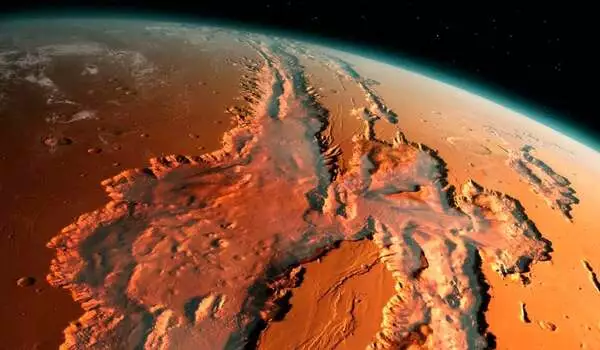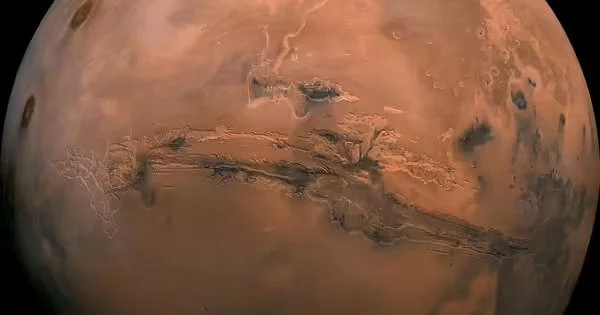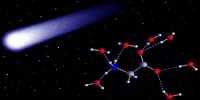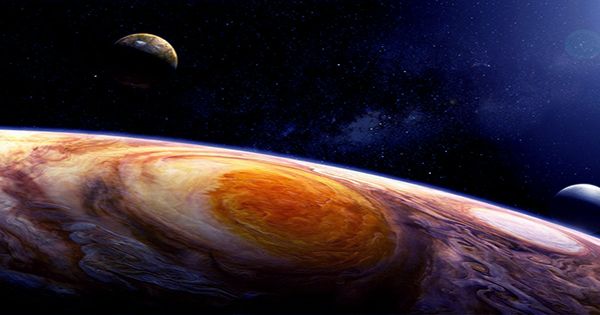Almost all of the water on Mars today exists as ice, though some exists as vapor in the atmosphere. What was previously thought to be low-volume liquid brines in shallow Martian soil, also known as recurrent slope lineae, may actually be grains of flowing sand and dust slipping downhill to form dark streaks. Mars was bombarded by icy asteroids when it was young, delivering the water and organic chemistry required for life to emerge. This means that the first life in our solar system may have originated on Mars, according to the professor behind a new study.
Mars is referred to as the red planet. However, it was once blue and covered in water, bringing us closer to discovering whether Mars ever harbored life. Most scientists agree that water existed on Mars, but the amount of water is still being debated. According to a new study from the University of Copenhagen, there was enough water around 4.5 billion years ago to cover the entire planet in a 300-metre-deep ocean.
“At this time, Mars was bombarded with asteroids filled with ice. It happened in the first 100 million years of the planet’s evolution. Another interesting angle is that the asteroids also carried organic molecules that are biologically important for life,” says Professor Martin Bizzarro from the Centre for Star and Planet Formation.
In addition to water, the icy asteroids also brought biologically relevant molecules such as amino acids to the Red Planet. Amino acids are used when DNA and RNA form bases that contain everything a cell needs. The study was published in the journal Science Advances.
At this time, Mars was bombarded with asteroids filled with ice. It happened in the first 100 million years of the planet’s evolution. Another interesting angle is that the asteroids also carried organic molecules that are biologically important for life.
Professor Martin Bizzarro
Mars may have had the conditions for life before Earth
According to the new research, the oceans that covered the entire planet were at least 300 metres deep. They could have been up to a kilometer deep. According to Martin Bizzarro, there is actually very little water on Earth.
“This occurred within the first 100 million years of Mars’ existence. Something disastrous happened to potential life on Earth after this period. A massive collision between Earth and another Mars-sized planet is thought to have occurred. The Earth-Moon system was formed by an energetic collision that also wiped out all potential life on Earth” Martin Bizzarro says.
As a result, the researchers have very strong evidence that conditions conducive to the emergence of life existed on Mars long before Earth.

Billion-year-old meteorite
It was by means of a meteorite that is billions of years old that the researchers have been able to look into Mars’s past history. The meteorite was once part of Mars’s original crust and offers a unique insight into what happened at the time when the solar system was formed.
The entire secret is hidden in the way Mars’ surface was created, of which the meteorite was once a part, because it is a surface that does not move. On Earth, the situation is the polar opposite. The tectonic plates are in constant motion and are recycled in the planet’s interior.
“Plate tectonics on Earth erased all evidence of what happened during the first 500 million years of our planet’s history. The plates are constantly moving and being recycled back and destroyed into the interior of our planet. In contrast, Mars lacks plate tectonics, so its surface does not preserve a record of the planet’s early history” Martin Bizzarro elaborates.
















